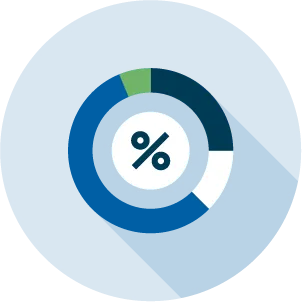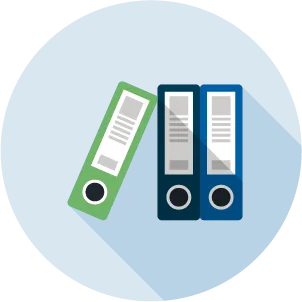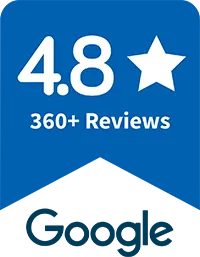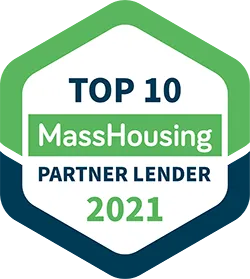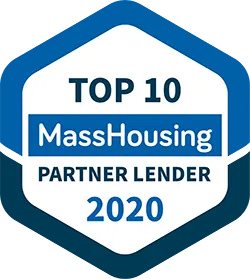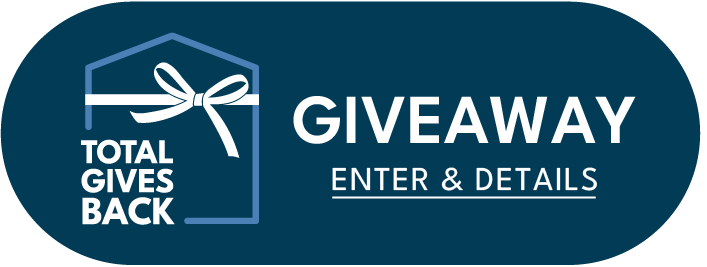

Parcel Return Service, DC Mortgage Rates today
Washington, D.C. offers a unique blend of history, culture, and opportunity. Its robust job market, world-class museums, and vibrant neighborhoods make it an exciting place to call home. As you explore real estate options, be sure to compare our current rates to secure a favorable mortgage for your D.C. residence.
If you have any questions about securing the best mortgage rates in Washington, D.C., please contact us today. We are here to assist you in finding the mortgage rates that best suit your needs.
Compare today's mortgage rates for Parcel Return Service, DC
Prequalify chevron_right
6.000%
6.734% APR
$3,038/mo
infoPrequalify chevron_right
6.875%
7.322% APR
$2,365/mo
infoPrequalify chevron_right
6.125%
7.154% APR
$2,375/mo
infoPrequalify chevron_right
6.125%
7.073% APR
$2,187/mo
infoPrequalify chevron_right
6.000%
6.646% APR
$2,185/mo
infoLatest revision - January 21 2025 12:30pm EST.We update the table twice every day with the current mortgage rates.
View Refinance Rateswe’re right around the corner
We have branches across the country. Check to see if we’re in your neighborhood.
Frequently Asked Questions
What are mortgage rates in Columbia?
Mortgage rates in Columbia refer to the interest charged by lenders against home loans. They fluctuate depending on market conditions, lender policies, and economic factors.
What are the current mortgage rates in Columbia?
The current mortgage rates in Columbia from different lenders are displayed in the above list. These rates are updated twice daily to facilitate an accurate comparison by first-time homebuyers.
How do Columbia interest rates affect mortgages in the state?
Interest rates in Columbia crucially determine borrowing costs. Lower rates reduce the overall cost of a loan, whereas higher rates convert into increased monthly payments and total borrowing costs.
Where can Columbia residents find the best mortgage rates?
To find the most desired mortgage rates in Columbia, it's imperative to contrast the mortgage rates, monthly payments, and the APR for each product listed in the table above.
D.C. Programs For First-Time Home Buyers
Washington, D.C., helps people buy homes for the first time. The DCHFA runs the DC Open Doors program. Even if you’ve never bought a home before, you can apply for a mortgage if you don’t own another property. With this mortgage, you get a lower interest rate and can get an extra loan for the down payment.
To get this mortgage, you need a credit score of at least 640. Also, your own yearly income can’t be more than $199,200. Your total debts compared to your income should be no more than 50%, or 45%, if you’re getting an FHA loan. There’s no limit on how expensive the house can be, but the biggest loan you can get is $726,200. Anyone can apply, but you have to buy a home in D.C. to get the loan.
DCHFA DC4ME program
The DCHFA offers the DC4ME program for government workers buying their first home (or their first home in the last three years). This first-time home buyer program in D.C. gives them a lower interest rate on a mortgage. They can also get 3 percent in down payment help, which is an extra loan with zero interest.
To qualify, you (or one of the borrowers) must work full-time for a District government agency, an independent agency, a District of Columbia Public Charter School, or another group overseen by the Council of the District. If you're not sure if your job qualifies, you can check a list of eligible employers.
You also need to meet these rules:
- Have a credit score of at least 640.
- Keep your debts compared to your income under 50%.
- Make sure your household income is no more than $199,200.
- Don't buy a home that costs more than $565,300.
- You'll also have to finish a class for first-time homebuyers.
Washington, D.C. Down Payment Assistance
DCHFA Home Purchase Assistance Program (HPAP)
The DCHFA’s Home Purchase Assistance Program (HPAP) provides Washington D.C. first-time home buyers with up to $202,000 for their down payment. This money is given as a separate loan with no interest. How much you get depends on your income and the number of people in your household.
You have to pay back the HPAP loan when you sell the home, stop living there as your main home, or refinance your first mortgage. Here's how repayment works based on your income:
- If you earn a moderate income, you don't have to make payments for five years. After that, you pay off the loan over 40 years.
- If you have a low or very low income, you don't have to make any payments unless you move out, sell the home, or refinance.
You can also get up to $4,000 to help with closing costs if you qualify.
To be eligible, you must be the head of your household, have a low-to-moderate income according to HPAP's rules, and have a good credit score. The home you're buying has to be where you live most of the time, and it must be in Washington, D.C. You also need to put at least $500 of your own money toward buying the home.
HPAP loans are given priority to people with low incomes, seniors, people with disabilities, and those who already live in D.C. or have worked there for a year.
Department of Housing and Community Development (DHCD) Employer-Assisted Housing Program (EAHP)
Under this program, eligible government employees can get help with their down payment. They can receive up to $5,000 that matches their own money, and they might also get a loan of up to $20,000 that they don’t have to pay back right away. First responders and teachers might get extra help, like grants for Washington D.C. first-time home buyers.
Here's what you need to do to qualify:
- Work for a government agency in D.C., which includes public schools and charter schools.
- Have been working there for at least a year (unless you're a first responder or a teacher).
- Haven't owned a home in D.C. for the past three years.
- Attend an orientation and an eight-hour training course.
Other Washington, D.C. first-time homebuyer Programs
Apart from the DCHFA programs, people can consider other Washington D.C. first-time home buyer programs, like FHA, VA, and USDA loans. These loans can be helpful because they let you buy a home without needing a big 20 percent down payment. They are backed by the government and are often easier to qualify for compared to other loans. Many lenders offer these types of loans.
FHA Loans
Insured by the Federal Housing Administration (FHA), these loans require a minimum down payment of either 3.5 percent (if your credit score is 580 or higher) or 10 percent (if your score is between 500 and 579).
VA Loans
These loans are for active-duty military members, veterans, and their surviving spouses. They are guaranteed by the U.S. Department of Veterans Affairs (VA) and don't need a down payment. They also usually have lower interest rates.
USDA Loans
Created by the U.S. Department of Agriculture (USDA), these loans don't need a down payment and are for low- and moderate-income buyers who are purchasing homes in USDA-approved rural areas. While D.C. isn't one of these areas, parts of Maryland and Virginia are.
Inclusion of a program on this website does not constitute an endorsement by Total Mortgage and does not guarantee your eligibility or approval for the program.
*Terms and Conditions Apply. For complete details click here.
Check out our other locations
Alabama , Arizona , Arkansas , California , Colorado , Connecticut , Delaware , District of Columbia , Florida , Georgia , Illinois , Indiana , Iowa , Kansas , Kentucky , Louisiana , Maine , Montana , Nebraska , Nevada , New Hampshire , New Jersey , New Mexico , New York , North Carolina , North Dakota , Ohio , Oklahoma , Oregon , Maryland , Massachusetts , Michigan , Minnesota , Mississippi , Pennsylvania , Rhode Island , South Carolina , South Dakota , Tennessee , Texas , Vermont , Virginia , Washington , West Virginia , Wisconsin , Wyoming , GuamMortgage rates are volatile and subject to change without notice. All rates shown are for 30-day rate locks with two and a half points for a single family owner-occupied primary residence with 750 or higher FICO and 80 LTV over a 30-year loan term except where otherwise noted and are subject to mortgage approval with full documentation of income. The APR for a 30-year and 15-year conventional fixed-rate mortgage loans are calculated using a loan amount of $360,000, two and a half points, a $495 application fee, $450 appraisal fee, $1,195 underwriting fee, a $10 flood certification fee, and a $82 credit report fee.* 15-year conventional mortgage rates are calculated with a 15-year loan term.* The APR for jumbo mortgage rates is calculated using a loan amount of $500,000, two and a half points, a $495 application fee, $450 appraisal fee, $1,195 underwriting fee, $10 flood certification fee, and a $82 credit report fee.* The APR for FHA mortgage rates is calculated using a loan amount of $360,000, two and a half points, a $495 application fee, $450 appraisal fee, $1,195 underwriting fee, $10 flood certification fee, and a $82 credit report fee. Some rates and fees may vary by state.* The APR for adjustable rate mortgages (ARMs) is calculated using a loan amount of $360,000, two and a half points, a $495 application fee, $450 appraisal fee, $1,195 underwriting fee, $10 flood certification fee and a $82 credit report fee. Some rates and fees may vary by state. Products are subject to availability on a state-by-state basis. By refinancing your existing loan, your total finance charge may be higher over the life of the loan.

